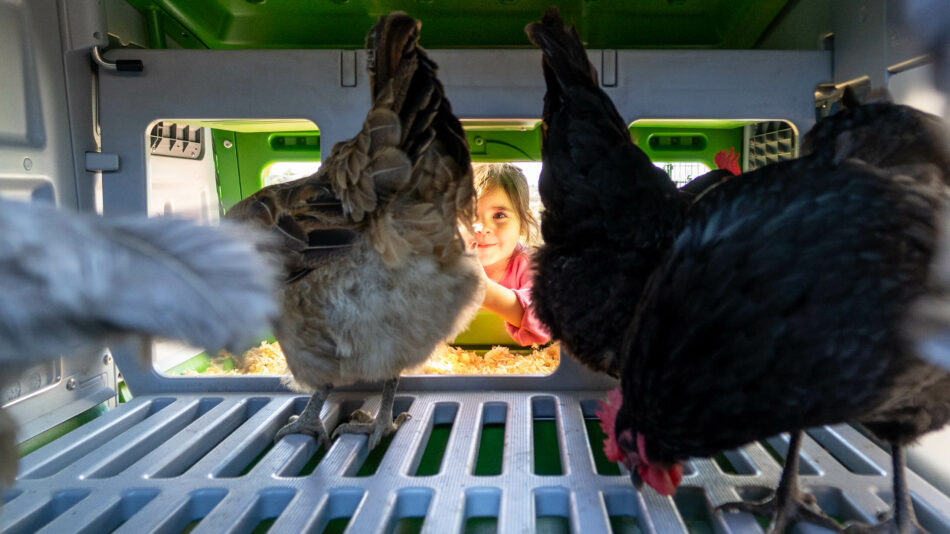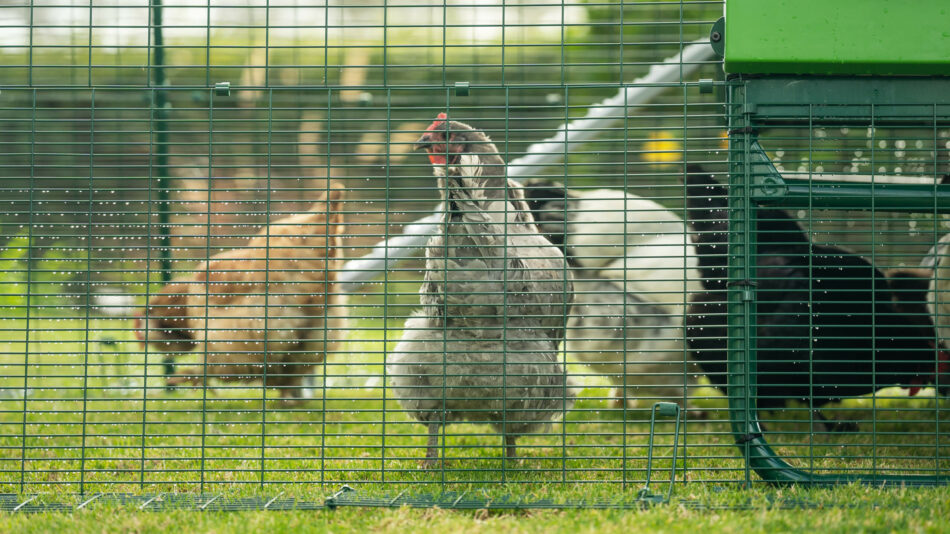How many chickens should I get?
Chickens make great backyard pets for families of all ages and locations. While traditionally thought of as farm animals, flocks of chickens are now frequently gracing the backyards of urban and rural-dwellers alike. A common question among aspiring or new chicken keepers is: how many chickens should I get? Here’s a guide to choosing the right size flock for your family, and how to comfortably house them.
What’s your current setup?
If you’re looking to expand your flock, think about your current setup. Chicken math is the phenomenon that occurs when a chicken keeper sets out with the idea of keeping a predetermined number of chickens, but ends up with quite a few more. This inevitably happens to chicken keepers at some point — mostly because chickens are just so much fun to keep.
With chicken math in mind, consider if your current setup can accommodate additional hens. Chickens need as much space as possible outside of their coop to keep them fit and happy, and their coop should be large enough to allow everyone to have a safe and comfortable roost at night. Up to 4 or 5 hens can share the same nesting box, but growing flocks need more than one nesting area to maintain healthy laying habits.
If you’re new to keeping chickens, consider how many eggs you’ll need for your family, and how involved you’d like for your children to be. Chickens make great pets for families with children, but some setups are easier than others for children to open, close, and collect eggs from. You can keep chickens with other pets, but they’ll need plenty of space to spread out, and their own respective areas for sleeping and eating.
Chicken-keeping restrictions
In addition to your lifestyle, you’ll need to take into account any chicken-keeping restrictions that may apply to your property. There are laws about keeping chickens, usually at the city level, but your home may also be subject to local zoning or homeowners association (HOA) laws. Always contact your HOA (if applicable) along with your city’s zoning office to see if you’re allowed to keep chickens on your property.
Most laws restrict:
- The number of chickens you can keep
- Owning a rooster
- The size and placement of chicken coops or runs
You may also need a permit in some cities in order to keep chickens. These are typically purchased annually.
If the laws that your property is subject to limits the number of chickens you can have, you won’t have to worry about chicken math, as your flock limit will be set for you. For these situations, purchase the largest chicken coop that will comfortably house the number of hens you can keep.
Space considerations
No matter the size of your flock, they’ll always be happiest when they have as much space as possible. For chicken keepers that don’t have restrictions on flock size, an extra large chicken coop is the best option. Omlet’s chicken coops are rated for various flock sizes, but the Eglu Pro Extra Large Chicken Coop is perfect for growing flocks and chicken math on the horizon. The Eglu Pro can house up to 15 small breed hens — but it’s not just for large flocks. Your smaller flocks will appreciate the additional space and nesting areas, and you’ll appreciate the option to add more chickens as you see fit without crowding being a concern.
Benefits of a large flock
Chickens are easy and fun to keep, and unlike other types of pets, it doesn’t matter if you have 4 or 20 — their care and your routine remain the same. Thinking about keeping a large flock? Check out these benefits of having more chickens.
Egg production
More hens means more eggs. If you’re looking to supply fresh eggs for your family, you’ll need a steady supply of eggs. A hen lays an egg roughly every day and a half, so if you eat eggs daily, each member of your family will need one and a half chickens. Practically speaking, you should aim to have 2 hens per member of your family if you want enough eggs to go around.
Increased pest control
More chickens also means more pest control. Chickens eat all sorts of backyard pests, including:
- Spiders
- Scorpions
- Grubs and worms
- Grasshoppers
- Ants
- Fly larvae
Your chickens can help you in your garden too. By using chicken fencing, or by strategically placing their chicken run next to your plants, you can let them control pests without damaging your garden.
Flock diversity
Having more chickens gives you an opportunity to keep different breeds. You can incorporate ornamental breeds with your laying breeds of chickens to add a touch of whimsy to your flock without sacrificing egg production. Dual purpose chicken breeds can also add variety to your flock due to their various sizes and colors.
Omlet and your flock
We’ve created the perfect chicken products to help you keep flocks of all sizes healthy and happy for years to come. Whether you’re new to chicken-keeping, or are a seasoned flock raiser, our Eglu Pro and Walk In Chicken Run are just the right size for small and large flocks alike. Give your chickens the space they crave, or give in to your impulse to bring home more hens — with the Eglu Pro, there’s always room for more.
This entry was posted in Chickens


